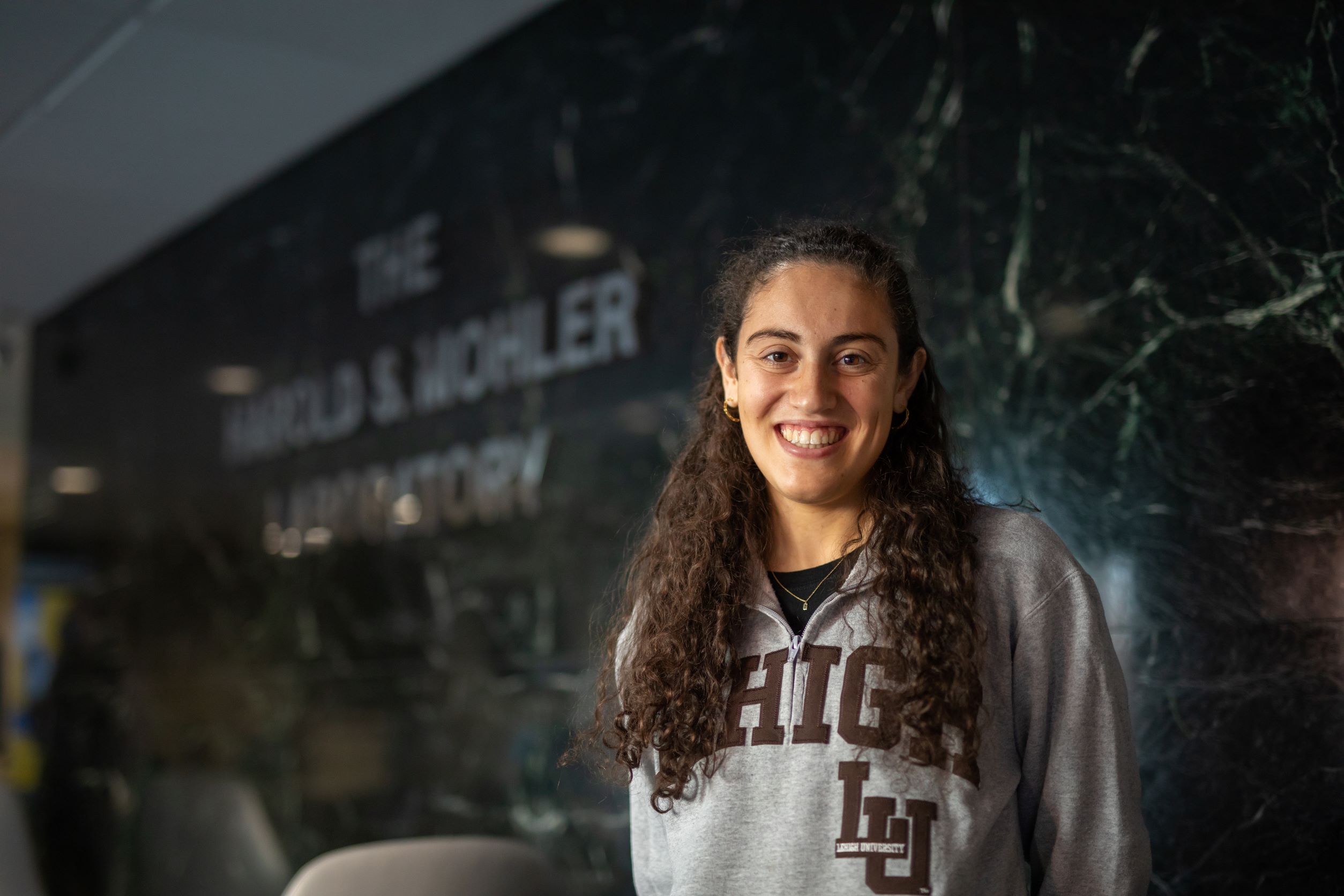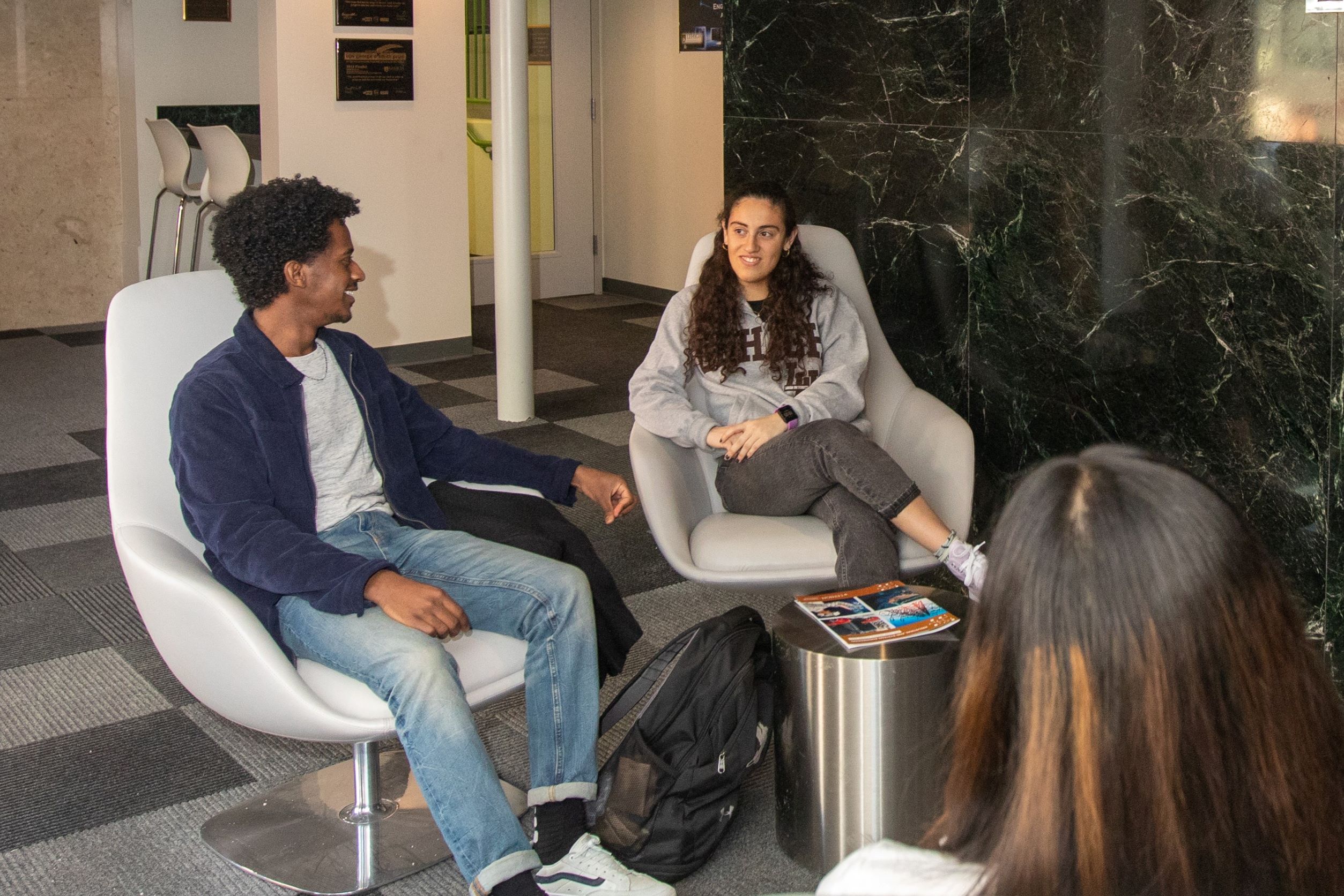
The manufacturer wanted to get a better handle on cycle counting, the system used to compare inventory listed on a company’s records against what is actually in stock.
Accurate counts allow companies to find and fix discrepancies quickly, reducing error, avoiding theft, and ultimately saving money.
But complicating the company’s goal was the fact that it produced a multitude of products at dozens of facilities. There was no uniformity to its cycle counting method.
To Giavanna Tabbachino ’21, it was just the type of real-world challenge she wanted to experience when she enrolled in Lehigh University’s master’s degree program in industrial and systems engineering (ISE).
The company had surveyed its employees for ideas on improving methods. As a graduate student, Tabbachino analyzed that data and reviewed information for past counts to look for inefficiencies.
She was also in constant communication with company officials and had to prepare and give presentations on key takeaways from the data.
“I feel they are important skills that I am going to carry with me a long time,” Tabbachino says.
Lehigh’s Master of Engineering (M.Eng.) program in industrial and systems engineering, offered in the P.C. Rossin College of Engineering and Applied Science, teaches students the tools needed to help industries design, improve, and optimize processes, systems, products, and services.
The flexible program can be completed in 12 to 18 months, in-person or online.
Industrial engineering wasn’t on Tabbachino’s radar when she was growing up in New Jersey.
As a high school student, she knew she had strong math skills, but didn’t know how she could apply them other than as a mathematician.
 It was while being recruited by colleges to run track that she began looking at undergraduate programs and landed on Lehigh’s bachelor’s degree in industrial and systems engineering.
It was while being recruited by colleges to run track that she began looking at undergraduate programs and landed on Lehigh’s bachelor’s degree in industrial and systems engineering.
“I thought this might be a good combination involving math … but also being able to apply it,” Tabbachino recalls
In her senior year of ISE studies, she decided to apply to the master’s program. Among her reasons: She wanted to gain more practical experience.
She was able to do that through Lehigh’s Enterprise Systems Center (ESC), which offers undergraduate and graduate students in all disciplines a chance to work directly with industry partners.
Once matched with a project, ISE students like Tabbachino can tap into the ESC’s array of computer technology to conduct modeling and use data analysis to develop ways to streamline processes and improve operations.
Tabbachino knew how beneficial the experience could be when she worked with another student on a cost accounting project for a bridge contractor for her senior capstone project through the ESC.
In that project, she talked with the company’s accounting, field, and estimating teams to identify issues and used mapping skills to devise technical and organizational improvements.
In one instance, they uncovered procedures that wasted time: Instead of using on-site computers, the field team was writing daily reports by hand and then taking pictures of them and emailing them in. She rotated out of the project before learning what remedies were implemented.
Tabbachino says her experience with the Enterprise Systems Center did more than hone her engineering skills. It put her in the room with top officials with decision-making powers.
“It was really helpful for me to see how to communicate in a real situation with real people in a company,” she says.
She also received valuable mentoring and guidance.
She credits ESC senior fellows Gregory E. Paul (a retired CTO of Martin Guitar) and Charalambos A. Marangos ’91 ’93G ’03 PhD (an operations research adjunct professor) with helping her review her analyses and prepare presentations.
Besides working with the Enterprise Systems Center, Tabbachino says another plus to the master’s program was the ability to take classes outside the program.
“I have taken a few supply chain management classes,” she says. “I think they were a really good way to tie together what I learned in my undergrad and graduate [ISE] classes.”
As she nears the completion of her master’s degree, Tabbachino has a job lined up with Crestron Electronics, a manufacturer of advanced control and automation systems for offices, campuses, and homes.
She will be become a quality systems engineer in Crestron’s Orangeburg, N.Y., facility, where she will help the company standardized systems as it works toward manufacturing certification.
Tabbachino says the assignment is tailor-made for the skills she’s learned at Lehigh.
“I’m definitely excited about it,” she says.
—Story by Katherine Reinhard '85G; Photos by Christa Neu
